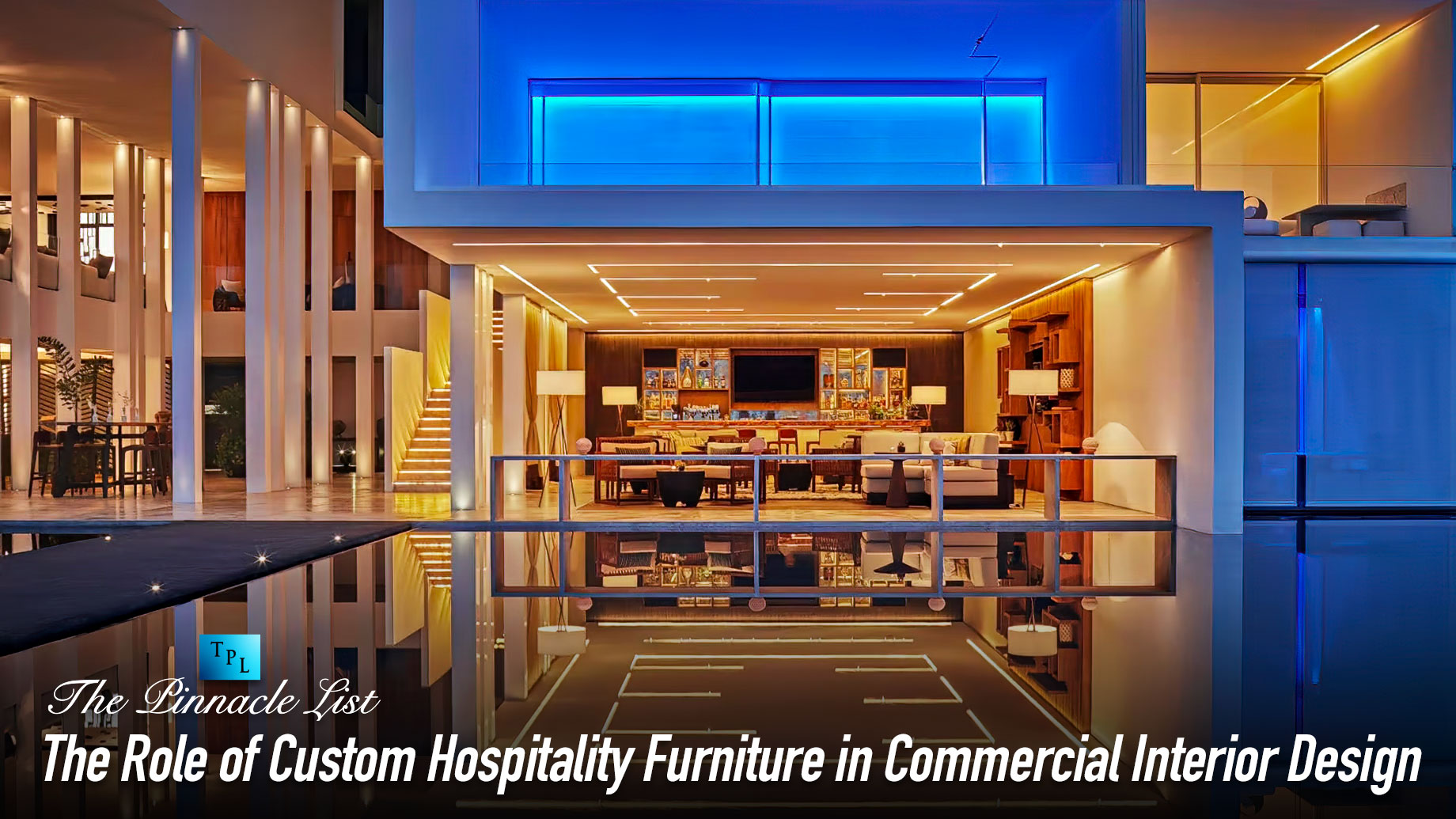
Within the intricate world of commercial interior design, custom hospitality furniture plays a crucial role, often serving as the hallmark of luxury and affluence. These bespoke creations are not merely furnishings; they are an embodiment of opulence, meticulously tailored to elevate spaces to new heights of elegance and luxury. Custom hospitality furniture captures the essence of a brand or establishment, telling a compelling story of exclusivity through its design, materials, and craftsmanship.
In this article, you will examine the significance of custom hospitality furniture in commercial interior design, focusing on its importance, the impact it has on the hospitality industry, and how it enhances the overall guest experience.
All About Custom Hospitality Furniture
In the fiercely competitive realm of the hospitality industry, custom hospitality furniture serves not just as the backbone of hotel and restaurant design, but as a definitive statement of luxury and attention to detail. Unlike mass-produced pieces, custom furniture is intricately tailored to meet the specific needs and aesthetic aspirations of a space, setting a location apart and imbuing it with a sense of exclusivity and affluence critical in making impactful first impressions.
These unique, meticulously crafted items go beyond mere functionality, significantly enhancing a hotel or restaurant’s overall concept and ambiance. With their superior craftsmanship and exquisite attention to detail, they elevate the guest experience, resonating with opulence and providing an undeniable touch of class.
In this way, the very design foundation of hotels and restaurants becomes deeply intertwined with the luxurious allure that custom hospitality furniture bestows.
Role of Custom Hospitality Furniture
The whole guest experience at hotels, restaurants, resorts, and other hospitality facilities is significantly enhanced with custom hospitality furniture.
Here are several vital points highlighting its importance:
Exceptional Aesthetic Appeal
Custom furniture enables hospitality companies to design a unique and attractive environment. A unique visitor experience may be enhanced by tailored designs that match the theme and surroundings of the place.
Optimized Space Utilization
Custom hotel furniture may be set up to properly match certain rooms, making the best use of available spaces. This is especially important in limited or irregularly shaped areas to provide effective seating arrangements without overcrowding.
Brand Representation
The brand identity of the lodging facility can be reflected in customized furniture pieces. A cohesive and recognized brand image is produced by using consistent design elements in furniture, décor, and branding.
Comfort and Ergonomics
Custom furniture allows hospitality businesses to give priority to comfort and ergonomics. Custom seating, beds, and other furnishings can be created with the guests’ comfort in mind, enabling them to stay extended and return in the future.
Durability & Quality
Heavy usage is typically required of hospitality furnishings. The right hospitality furniture manufacturers ensure that the custom pieces are formulated using top-quality materials, ensuring durability and longevity. Over time, this lowers the need for frequent replacements, saving money.
Flexible Design Options
Customization enables design versatility, allowing companies to modify their furniture in accordance with shifting trends or themes. The institution will always be visually appealing and pertinent to visitors because of its versatility.
Improved Functionality
Custom furniture can be customized to meet explicit functional necessities. For example, in hotels, beds with integrated capacity or work areas with worked-in charging stations can improve the visitor experience by giving added comfort.
Importance of Commercial Design
Commercial design holds significant importance in various business sectors and industries. Here are several key points highlighting commercial interior design significance:
First Impressions
Commercial design creates the first impression of a business. A well-designed commercial space immediately communicates professionalism, trustworthiness, and attention to detail, influencing how clients, customers, and partners perceive the company.
Branding and Identity
Commercial design can be used to express a brand’s identity visually. Through color schemes, logos, and overall aesthetics, commercial spaces reinforce brand messaging, making the brand more memorable and recognizable.
Optimized Functionality
A well-designed commercial space takes into account the specific needs of the business. Whether it’s a retail store layout, an office floor plan, or a restaurant arrangement, commercial design optimizes functionality, ensuring efficient use of space and resources.
Enhanced Productivity
In office environments, thoughtful commercial design can enhance productivity and employee morale. Comfortable seating, proper lighting, ergonomic furniture, and well-organized workspaces contribute to a positive work atmosphere, leading to increased productivity and creativity among employees.
Customer Experience
For businesses in the service industry, such as restaurants and hotels, commercial design directly impacts customer experience. Comfortable seating, appealing decor, and intuitive layouts contribute to a pleasant atmosphere, enhancing customer satisfaction and encouraging repeat business.
Conclusion
Custom hospitality furniture stands out as a game-changer in the highly competitive hospitality business world. It can turn ordinary ambiance into remarkable experiences by combining practicality with beauty. In order to shape the future of commercial interior design, hotel furniture producers and interior designers must continue to embrace customization in all of its essential forms. The hospitality industry may raise its standards by investing in customized furniture options, ensuring that visitors feel at home and mesmerized by their surroundings.